



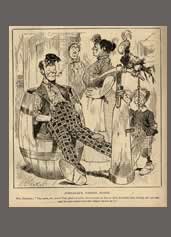
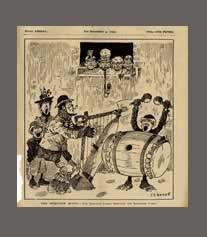
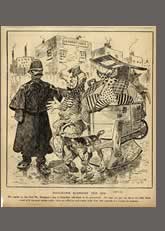
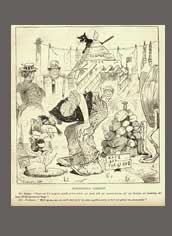
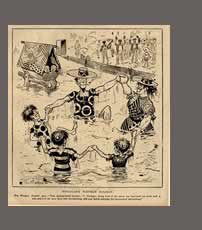
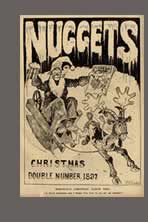
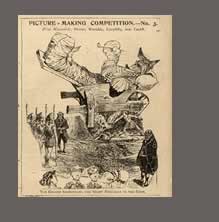
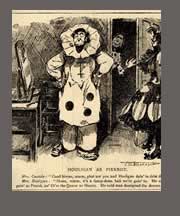
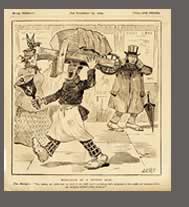
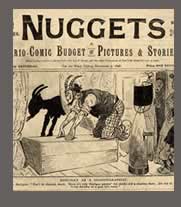
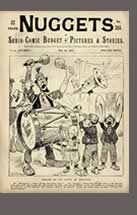
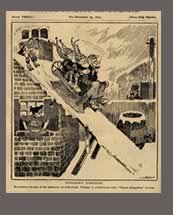
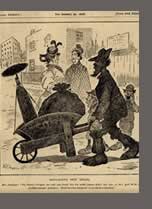
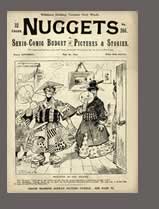
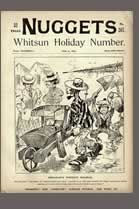
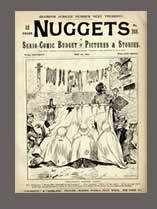
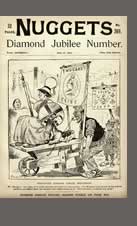
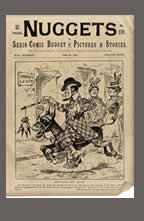
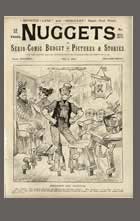
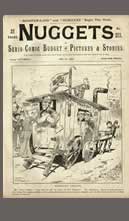
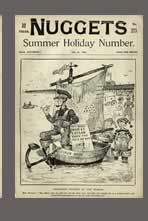
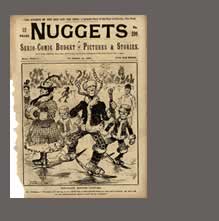
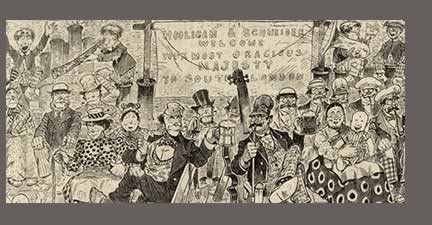
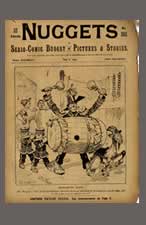



 |
 |
 |
 |
|||||||||||||||||
 |
 |
 |
||||||||||||||||||
 |
 |
|||||||||||||||||||
 |
 |
|||||||||||||||||||
 |
 |
 |
||||||||||||||||||
 |
 |
 |
 |
 |
 |
|||||||||||||||
 |
 |
 |
 |
 |
 |
|||||||||||||||
 |
 |
 |
||||||||||||||||||
 |
||||||||||||||||||||
 |
||||||||||||||||||||
Nuggets featured T.S.Baker's The Hooligan (1894-1905), an ingenious and impertinent Irishman with wife, goat and children, living apparently in South London in contented poverty, taking on light work with a philosophy of Make Do and Mend, but clearly a natural entrepreneur. He personified the publication by appearing on the cover, in its advertising and on special days such as Christmas and Easter. He is clearly related to other such low-life riffraff such as Robert Macaire and Ally Sloper. In the days of Fenian outrages, the Irishman was seen as a Neanderthal with an assassin's blade, often drawn by Tenniel for PUNCH. By the 1890's and after extended exposure to the itinerant Irish navvies and their families in London, The Hooligan aimed at more rounded and domestic presence. He interpreted the events and fashions of the day in the context of a rivalry with the Schneider Family, archetypal German immigrants with all their Bavarian trappings of smoking and drinking. Onee attended the Shamrock Lodge, the other the Lager Hall. So original is T.S.Baker I wondered whether the character was orginally American and had been redrawn for the English market - with characteristic policemen and street furniture. The graphic style is well achieved, sustained well over the years, and always inventive in drawing and imagination - The Parrot Stand, the omnipresent wheel barrow. Baker loves drawing shoes and puttees. There is something of the ingenuity of Fred Flintstone's Prehistoric Furniture in Baker's love of consumer durables simulated from the actual world. A Puzzle here. There is an American comic character called The Happy Holligan. The American artist Frederick Burr Opper's "Happy Hooligan" first appeared in Hearst's supplement The American Humorist in 1900. Burr would have known Nuggets before 1900 as his own work was reproduced there. Orr's Hooligan is a different animal, and was largely involved in multi-panel narratives but was clearly based on Baker's creation. Baker is an English original and his name should be bracketed with that of W.G.Baxter and Marie Duval as major pioneers of the English Comic.
|